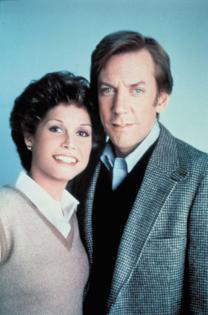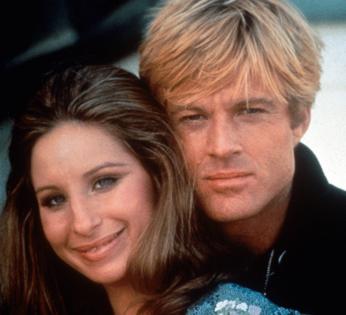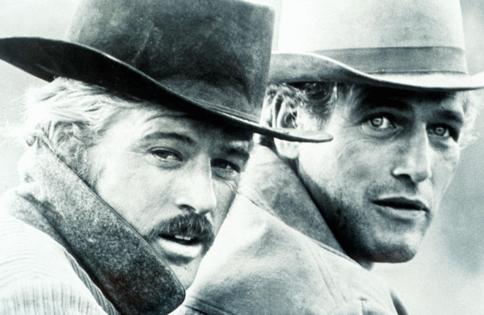Robert Redford's legacy in 10 essential films
Published in Entertainment News
LOS ANGELES — Robert Redford’s impact on cinema through the Sundance Film Festival was supercharged. His work behind the camera was often extraordinary, winning the Oscar for his directorial feature film debut, “Ordinary People.”
But Redford the actor was equally exceptional, a charismatic icon who starred in some of the greatest films in the 1970s and ’80s, movies that remain ingrained in our collective memory. And time did not diminish him. He arguably gave his greatest performance at the age of 77 in “All Is Lost.”
Listing all of Redford’s notable work in front and behind the camera is impossible. You could spend a year exploring his filmography and still not be finished. Here are 10 of his best. Watch these and then keep digging for treasure.
‘All Is Lost’ (2013)
For many of you, this might be the one movie on this list that you haven’t seen, much less know. Redford plays a mariner — an ancient one at that, as he was 77 when he made this movie about a man battling the elements and fighting for his life after his well-appointed yacht is hit by a shipping container in the Indian Ocean. As an actor who leaned into his natural reserve, Redford must have loved this role. His character, identified in the credits only as Our Man, says all of 51 words, which means Redford had to use everything he learned over a half-century to bring us inside the movie’s complicated hero. It’s a one-man show that I can say without hyperbole is the best work he ever did. It’s a shame it wasn’t more widely seen, though that now opens the door for a belated discovery. — Glenn Whipp
‘All the President’s Men’ (1976)
Alan J. Pakula’s Watergate drama is remembered as one of the great political thrillers, but for Redford it was a gamble of conviction and clout. He optioned the Woodward-Bernstein book himself, pushing through doubts that a film built on phone calls, door knocks and note-taking could grip audiences. As Bob Woodward he strips away glamour, playing a reporter who is awkward, halting and dogged, yet unshakable once the trail begins to unfold. Opposite Dustin Hoffman’s Carl Bernstein — fast-talking, improvisational, always pushing — Redford is methodical and contained, and together they embody the tension and rhythm of investigative reporting, turning the grind into suspense. With this role, Redford showed that persistence, not bravado, could carry a movie, and that a star could trade charm for credibility without losing magnetism. It cemented his reputation not just as a leading man but as a cultural force who could will serious stories onto the screen. — Josh Rottenberg
‘Butch Cassidy and the Sundance Kid’ (1969)
Jack Lemmon didn’t want to ride horses. Steve McQueen required top billing. Warren Beatty was reluctant to play another outlaw so soon after “Bonnie and Clyde.” Then Joanne Woodward, Paul Newman’s better half, suggested Robert Redford and the rest is history. If there’s a better pairing in a movie, I’d like to hear it. Redford wasn’t yet a movie star, but director George Roy Hill’s postmodern western made him one. He held the screen, his laconic presence a perfect complement to Newman’s boisterous Butch. Playing outlaws on the run, cornered men whose time had passed, bickering and bantering like an old married couple who can’t imagine a life without each other, they’re perfect together. Trapped on a cliff with no apparent escape, Newman suggests they jump. Redford protests. Newman insists.“I can’t swim!” Redford barks. Newman doubles over in laughter. “Why, you crazy — the fall’ll probably kill you.” This movie will live forever. — Glenn Whipp
‘The Natural’ (1984)
I was at the gym when I saw on a TV monitor that Redford had died. And the first image they put on screen was Redford as Roy Hobbs in “The Natural,” Barry Levinson’s Arthurian baseball fable that sits alongside “Field of Dreams” in Dad Movie Canon. It’s not Redford’s best movie, not by a mile. But Redford, who played baseball at Van Nuys High and was good enough to earn a college scholarship, was convincing as a ballplayer who fashioned his own bat from a tree splintered by lightning. As a young man, Roy was going to be the “best there ever was,” but life and a bullet got in the way. When he returns 16 years later, Redford puts the lines on his face and his trademark reticence to good use, tapping into our collective need for heroes and a belief in second chances. The movie’s ending — Roy up at the plate, down to his last strike, bashing a homer that shatters the stadium lights— endures along with Randy Newman’s score, both still soaring into the night after all these years. — Glenn Whipp
‘Ordinary People’ (1980)
By 1980 Redford had conquered stardom, but his directing debut revealed a different ambition: to be taken seriously as a filmmaker. Instead of a grand vehicle for himself, he chose a small domestic drama adapted from Judith Guest’s novel, about a family unraveling after loss. The material could easily have tilted into melodramatic TV territory, but Redford handled it with a steady, unshowy touch, letting pain seep through pauses, glances and the things left unsaid. He coaxed a devastatingly chilly turn from Mary Tyler Moore, drew quiet strength from Donald Sutherland and guided Timothy Hutton to an Oscar-winning breakthrough. The result was an intimate portrait of grief that felt lived in rather than staged, proof that Redford’s instincts behind the camera were as disciplined as his screen persona. The Academy rewarded him with Oscars for director and best picture, elevating him from Hollywood icon to filmmaker shaping his own legacy. — Josh Rottenberg
‘Quiz Show’ (1994)
Redford’s high point as a director works beautifully in the context of his whole career: It’s a movie that insists on rooting out the truth, on the righteousness of that effort, as unglamorous as it might be. But unlike “All the President’s Men,” there is sympathy this time for the liars. Intelligently scripted by Paul Attanasio, the movie takes on the “Twenty-One” quiz-show scandals of the late 1950s, but notice how Redford subtly accommodates his own on-screen pet obsessions. Ralph Fiennes’ fallen Charles Van Doren — lured into cheating by his newfound TV celebrity — is a role Redford could have played a couple of decades earlier, while John Turturro’s whistleblower, harsh but correct, is probably the part Redford wishes he could play. And when Martin Scorsese shows up as a devilish corporate executive, Redford finally feels like he has earned that cameo — a place among that pantheon of storytellers. — Joshua Rothkopf
‘Sneakers’ (1992)
I can’t explain why this breezy comic caper is such a dependable midnight snack for me. It arrived at a time when “hackers” and “black boxes” were still terms that gave off a sexy frisson. The plot is a lovable mishmash of spy nonsense — Dan Aykroyd does a lot of conspiracy babbling — but “Sneakers” works best if you just let it be the relaxed conversation movie it wants to be. Consider the cast: David Strathairn, Ben Kingsley, Mary McDonnell, River Phoenix, the sonorous James Earl Jones. And, holding down the heart of the film with a gravity it probably doesn’t deserve, is Redford, running his techno-security squad with just the right balance of seen-it-all cynicism, idealism and swagger. It’s still possible to get a bunch of actors together and let them banter. For people who love that kind of filmmaking, “Sneakers” is an unlikely ür-text: a conspiracy thriller with training wheels. — Joshua Rothkopf
‘The Sting’ (1973)
Four years after “Butch Cassidy and the Sundance Kid,” director George Roy Hill reunited Redford and Newman, crowning Redford as one of the era’s defining stars. Set in Depression-era Chicago, “The Sting” follows two grifters running an elaborate con against a powerful mobster, with Newman as the cool, unflappable veteran and Redford’s Johnny Hooker the reckless apprentice, flashing a charm that barely masks his nerves. That jittery energy gave the movie its spark and proved Redford could match Newman not just in charisma but in presence. “The Sting” was a commercial and critical triumph, sweeping seven Oscars including best picture and earning Redford his only acting nomination. Coming on the heels of “Jeremiah Johnson” and “The Candidate,” it marked the peak of his early superstardom, the moment when he moved from breakout partner to box-office powerhouse in his own right. The sting, in retrospect, is that Hollywood never nominated him for acting again. — Josh Rottenberg
‘Three Days of the Condor’ (1975)
If you love paranoid ’70s conspiracy thrillers (and if not, maybe rethink that), you’ll know there’s a correct way into the obsession: “Chinatown” and “Klute” lead to “The Parallax View” and “The Conversation.” The Redford-starring “Three Days of the Condor” is expert-level, a spy game so coolly frightening and understated, it barely raises above the level of a whisper. We hear that serious global concerns hang in the balance involving Middle Eastern oil. But Redford’s cerebral CIA analyst (“I’m not a field agent — I just read books,” he insists) isn’t involved at first. It’s one of his most fascinating, buttoned-down turns. His colleagues are murdered and even kidnapping Faye Dunaway doesn’t quite result in sparks so much as an absorbing movie-long seethe. Redford runs around downtown New York in a blazer and jeans and you see a glimpse of the whole of unpretentious action stardom that followed. — Joshua Rothkopf
‘The Way We Were’ (1973)
Redford occupies an iconic romantic permanence — part of that is his handsome aloofness, an appeal that never quite became approachable, even as his good looks were almost scarily perfect. Undeniably, he brings out the best in Barbra Streisand in this Nixon-era hummable smash, which cemented Redford as a star and led to many other date-night films, including “The Natural” and “Out of Africa.” His WASPy Hubbell represents forbidden fruit to Streisand’s 1930s college activist; the movie gets its shout-out on “Sex and the City.” But it’s worth stressing the takeaway: Redford was always deferential to his leading women, all of whom bloomed and ached in his absence. He made an art out of playing hard to get. Perhaps he thought the gig was too easy. Redford will forever be a star fleeing his own magnetism, striving for substance. And he will always be Hubbell. — Joshua Rothkopf
©2025 Los Angeles Times. Visit at latimes.com. Distributed by Tribune Content Agency, LLC.


















Comments